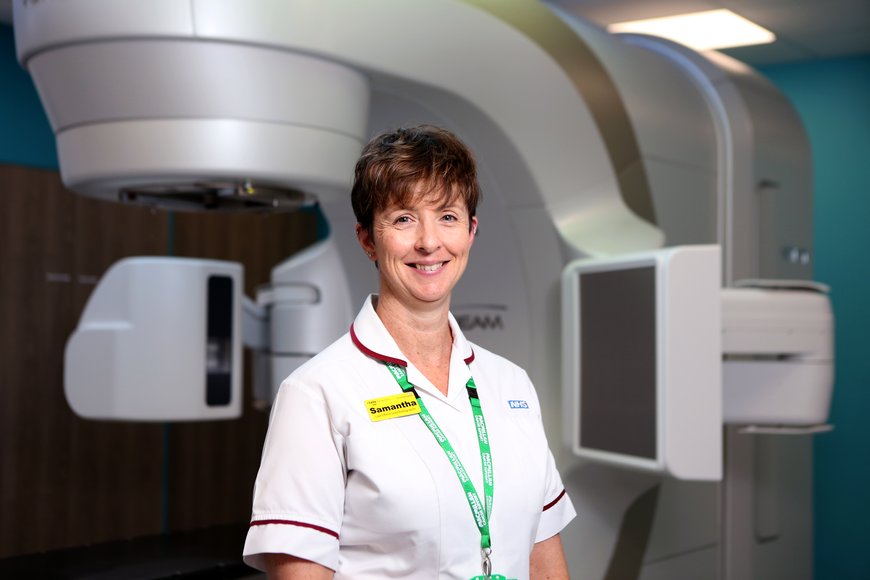Radiotherapy Late Effects service secured for the future
A vital cancer support service for people living with the late effects of radiotherapy has been secured for the future across the South West.
Cancer survivors who are managing the long-term late effects of radiotherapy will continue to have access to specialist support, following the recommissioning of the Radiotherapy Late Effects Service across the South West, including at Gloucestershire Hospitals NHS Foundation Trust (GHFT).
Recommissioned by NHS England (NHSE) in partnership with the Somerset, Wiltshire, Avon and Gloucestershire (SWAG) Cancer Alliance, the service provides both clinical expertise and emotional support for people experiencing side effects that develop after radiotherapy. Initiated by the South West Radiotherapy Network, the service was first launched as a pilot with the support of Macmillan in 2022.
This vital service at GHFT originally launched in August 2022 and has already supported more than 1,000 patients. These individuals often experience symptoms that can emerge months or even years after treatment, depending on which part of the body was treated.
This renewed commissioning secures the continuation of the service, ensuring that anyone who has received radiotherapy as part of their cancer treatment can access help for ongoing or delayed side effects.
“The Late Effects team should be extremely proud of what they’ve achieved in just over three years. They’ve not only improved quality of life for hundreds of patients but also gathered vital data to inform future cancer care across the region.”
Bridget Moore, Radiotherapy Services Manager at GHFT
Samantha Bostock, Macmillan Late Effects Lead Radiographer at GHFT who has personally supported over 400 patients, said: “Many patients face ongoing challenges well beyond their treatment. This service ensures they have access to consistent, specialist care across the South West.
“We’ve built clear referral pathways and links with expert services. Looking ahead, we plan to expand our team, run targeted group clinics – including one focusing on erectile dysfunction for prostate cancer patients – and provide more education to primary care professionals to improve access for all.
“We’re also committed to involving patients in shaping the service, using forums and feedback to guide our work.”
An independent evaluation carried out by the South West Commissioning Support Unit, funded by the SWAG Cancer Alliance, praised the service for its significant impact. The report highlighted the successful integration of therapeutic radiographers like GHT's Advanced Practice late effects radiographer, Eloise Casey into patient pathways. The evaluation also noted a reduced reliance on secondary care, offering a model that could be adopted nationally.
"We cannot necessarily remove or reverse the effects that patients experience as a result of previous radiotherapy treatment but importantly, we can reduce the impact this is having on their quality of life or ability to function."
Samantha Bostock, Consultant Late Effects Radiographer
Symptoms relating the side effects following radiotherapy treatment can develop months, years, or even decades after undergoing radiotherapy. This can have a significant impact on a patient’s quality of life by affecting them in a number of different ways.
One patient commented: "The Late Effects service has amazing, helping me deal with the after effects of having radiotherapy from cervical cancer. The service was so personable and supportive. It has been really hard dealing with the 'new me' but Samantha totally understood and helped and supported me to be able to carry on doing things I love to do."
